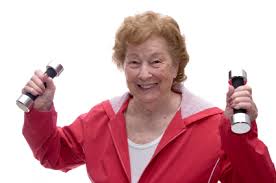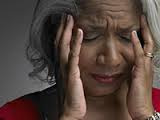 In my last posting, I gave a checklist of the preventive health touchstones for men over age 65, and you will see some fairly predictable parallels to women’s health as they hit 65 as well. But take note of the differences if you are a caregiver to an older woman. I am going to start
In my last posting, I gave a checklist of the preventive health touchstones for men over age 65, and you will see some fairly predictable parallels to women’s health as they hit 65 as well. But take note of the differences if you are a caregiver to an older woman. I am going to start
Bone Health – all women need to have their bone density tested even before age 65, and it is largely because of the hormonal changes that are associated with aging. the bone density test is called a DEXA scan, and if you are a caregiver to an older woman, you should approach her doctor about having it done as well as ask about what amount of calcium supplement will be a helpful part of her daily intake. Again, exercise will be important as well.
Breast Health – there are risk factors that every woman ought to know, but on average, a mammogram every year or other year depending on their risk factors. All women of any age should learn self-exams as part of their monthly ritual as well.
Pelvic Health – once a woman stops ovulating, and 65 is well beyond that, PAP smears are no longer part of the annual routine unless they have had a positive test result at some point along the way. The rule is that three negative tests within the past decade makes for a safe future but check with the physician.
Blood Pressure – women should have their blood pressure documented annually as with men. With diabetes or heart disease, this maybe more frequent. If blood pressure is above 135/80 blood sugar levels should be tested regularly.
Oral Hygiene – as with men an annual cleaning and exam is a must. Again, oral health tracks with heart health, so twice a year has more benefit that just a great smile.
Cholesterol Levels – if cholesterol has been within normal ranges, a check about every three to five years is adequate. With heart disease or diabetes, this should be more frequent.
Colon Health – up to age 75 a “virtual colonoscopy” every five years. A stool test every year, a sigmoidoscopy every five years and a colonoscopy every 10 years without a history of family colon issues or cancer.
Eye Health – again, a vision exam is recommended every two years as a screen for glaucoma and visual acuity. If the older patient has diabetes, more frequent testing.
Immunizations – as with older men, keeping current with all immunizations is important. For pneumococcal vaccines, every five years; flu shots annually. And the shingles vaccine if she has had chicken pox when younger. A tetanus booster every ten years is recommended, and talk to the primary care provider about anything else.
Everything else – as with men annual exams are a time to weigh in, record height and test hearing. And women as much as men are prone to depression as they age. A physician can offer an assessment as well as a consult on all medications and any possible interactions .
Charlotte Bishop is a Geriatric Care Manager and founder of Creative Care Management, certified professionals who are geriatric advocates, resources, counselors and friends to older adults and their families in metropolitan Chicago. Please email your questions to info@creativecaremanagement.com.






